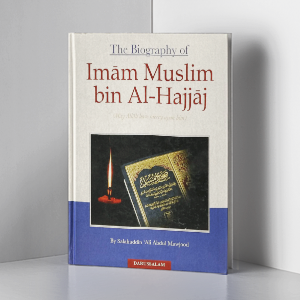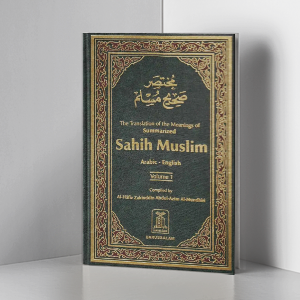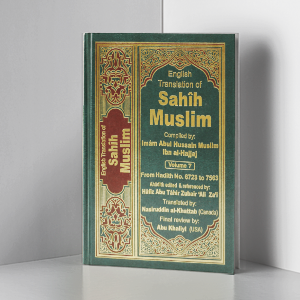The commands that Allah has given to us human beings have two main purposes. On the one hand, these human beings, as creatures, remain to pay homage to their Creator, Allah Almighty, and remain to worship Him, and on the other hand, they should be taught the rules and regulations of living on this earth so that they may avoid ignorance, oppression and sin. As a result they would succeed in the hereafter and enter the paradise of Allah.
The Holy Quran mentions that this chain of messengers remained till Allah’s last messenger Muhammad ﷺ and there would not be another messenger after Muhammad ﷺ till the day of judgement.
All Muslims believe that the Holy Prophet Muhammad ﷺ is the last Messenger of Allah Almighty and no other Messenger will come after him. In this sense, the religion of the Prophet ﷺ is a guide for the people till the Day of Resurrection. This also means that the teachings of the Prophet ﷺ and hadith will be so comprehensive that this religion will solve issues from all spheres of life for people of all backgrounds till the Day of Judgment.
Allah Almighty says about the Prophet Muhammad ﷺ:

This verse reveals that the Allah’s Messenger ﷺ was given two things, the book and al-Hikmah. “The book” means Allah’s last book, the Holy Quran and “al-Hikmah” means the Prophet’s Sunnah which is also referred to his Ahadith.
As for the Hadịth (which is Revelation Unrecited), Allâh charged the Ummah to preserve it. The Messenger of Allâh ﷺ, said:
“نَضَّرَ اللَّهُ امْرَأً سَمِعَ مِنَّا حَدِيثًا فَحَفِظَهُ حَتَّى يُبَلِّغَهُ”
“ May Allah brighten a man who hears a tradition from us, gets it by heart and passes it on to others.”
(أبو داود: 3660)
In the whole history of mankind, there has never ever been an example similar to the system evolved by Muslims to preserve the Hadîth and Sunnah of the Messenger of Allâh ﷺ. The Verses of the Qur’ân were committed both to memory and to writing as they were revealed but the sayings of Allâh’s Messenger ﷺ were committed to memory only and, later, communicated to those not present at the moment.
Documents and necessary instructions were written for those who needed them, at the Messenger of Allâh’s ﷺ bidding. For example, Imâm Bukhârî relates that Abû Shah, a Companion living in Yemen, requested the Messenger ﷺ for a written copy of the sermon he had delivered on the day of the conquest of Makkah dealing with the inviolability of Makkah and with the blood-money. The Messenger ﷺ said: “Write (it) down for Abû Shah.”
When the system of writing the Qur’ân had developed well and was stabilized, the Companions were allowed to note down all the sayings of the Messenger of Allâh ﷺ, without distinction.
‘Abdullâh bin ‘Amr narrates: “I used to note down each and everything I heard from the Messenger of Allâh ﷺ, and liked to memorize it. The Quraysh said to me: ‘You write down everything you hear from the Messenger of Allâh ﷺ. The Messenger of Allâh is a human being. He speaks both in anger and pleasure’. So I stopped writing. I told the Messenger of Allâh ﷺ, about it. He replied: ‘Write. By the One in Whose Hands my soul is, nothing comes out from my mouth except the truth.”
(أبو داود: 3646)
The Sunnah (Hadith) was not recorded during the time of the Prophet ﷺ just as the Qur’an was written. Rather, it was preserved in the books, and the Companions transmitted it verbally to those who followed them after them, except for what some of the Companions had of newspapers in which they recorded some of what they heard from the Messenger of Allah ﷺ such as: Abdullah bin Amr, and Omar bin Al-Khattab رضي الله عنهما thought of writing it down, but he changed his mind.
The first person to order to collect them was Umar bin Abdul Aziz رحمه الله, and he sent to Abu Bakr bin Hazm رحمه الله his handler and judge over Madinah, and he said: See what was from the hadith of the Messenger of Allah ﷺ and write it, for I feared the loss of knowledge, and passing the scholars away.
But he (Abu Bakr bin Hazm رحمه الله) did not record all the Sunnah and sayings that were in the city of Madina, but this was done by Imam Zuhri رحمه الله. He was a contemporary of Umar bin Abdul Aziz رحمه الله and he (Umar bin Abdul Aziz) used to advise his sitters to go to him, because there was no one left on the face of the earth who knew the Sunnah better than him, so he wrote down all the hadiths and sayings of the Companions of the Holy Prophet ﷺ. Thus Al-Zuhri was the first to lay the foundation stone in the codification of the Sunnah, then the codification became popular in the next generation of Al-Zuhri.
So, after Imam Zuhri رحمه الله, hadith was collected in the city of Makkah by Ibn Juraij, Ibn Ishaq, and in the city of Medina by Saeed Ibn Abi Orouba, Al-Rabee`, Imam Malik, and in the city of Basra by Hammad, And in Al-Kufa city by Al-Thawri, in Al-Sham (Syria) Al-Awza’i, and so on.
Then came the third century, and it was the brightest of the ages of the collection of the Hadith. Then the Musnad was classified as the Musnad of Imam Ahmad, the Musnad and Ishaq bin Rahwayh, then the Sahih: Bukhari and Muslim, then the Sunnahs were compiled by Abu Dawud, Al-Nasa’i, Ibn Majah, and Tirmidhi.
Imam Muslim
Imam Muslim bin al-Hajjaj bin Muslim bin Ward bin Koshâdh Al-Qushayrî An-Nîshâpûrî was born in 202, 204 or 206 A.H. in Nîshâpûr and was educated in the same town.
He heard Ahadith the first time, at the age of eighteen, from Yahya bin Yahya Tamîmî.
In 220 AH he went on pilgrimage to Makkah where he heard Ahadith from ‘Abdullâh bin Salamah Qa’nabi, the most revered pupil of Imâm Mâlik and the principal teacher of Imâm Muslim.
In Kûfa, he heard Ahadith from Ahmad bin Yûsuf and a host of other teachers. In addition, he also heard from nearly 220 teachers in Makkah, Al-Madînah, ‘Irâq and Egypt.
The system of hearing Ahadith in those times consisted of hearing and writing down Ahadith along with their chains of narration.
Among the renowned teachers of Imam Muslim were Al-Imâm Ahmad bin Hanbal, Ahmad ibn Mundhir Qazzâz, Ishâq bin Rahawaih, Ibrâhîm bin Sa’eed Jawhari, Ibrâhîm bin Mûsâ, Abû Ishâq Râzî, Ahmad bin Ibrâhîm, Ishâq bin Mûsâ Anşâri (Abû Mûsâ) Ismâîl bin Abû Owais, Harmala bin Yahya (Abû Hafs Tajîbî) Hasan bin Rabî Burânî, Abû Bakr bin Abû Shaiba, Yaʻqûb bin Ibrâhîm Dawraqî, Abû Zur’ah Râzî, Yahya bin Ma’in and other Huffâz.
The circumstances of his death, as recorded in Târîkh Baghdâd and Sîr A’lâmun-Nubalâ”, and are very strange indeed, and show his excessive passion for the science of Hadîth and his inordinate zeal for inquiry and research in this field.
According to Ahmad bin Salamah, a gathering was held to benefit by the knowledge of Imâm Muslim. There he heard a Hadîth which he had not heard before. When he came back home, he lit a lamp and told his family not to allow anyone to enter his room. His family told him about a gift they had received, a basketful of dates. He told them to bring it to him. Immersed in his search for that particular Hadith, he kept on eating the dates, one by one, while he was absorbed in his search for the Hadîth. By early morning, he found the Hadith but the basket was empty. It was for this reason, it is said, that he fell sick and died.

Imam Muslim’s written works
Imam Muslim’s contribution to the collection of hadith plays an instrumental role in the history of Islam that can never be omitted. He was the author of more than 20 books that have great status to the Muslim Ummah.
The following are the important works of Imam Muslim as mentioned by Imam Hakim and other hadith scholars:
- Al-Asâmî wal kunâ
- Kitâb At-Tabaqât
- Kitâb Al-Wahdân
- Kitâb Al-Afrâd
- Kitâb Al-Aqrân
- Kitâb Awlâd As-Sahâbah
- Kitâb Afrâd Ash-Shâmiyyîn
- Kitâb Mashâikh Mâlik
- Kitâb Mashâikh Ath-Thaurî
- Kitâb Mashâikh Shu’bah
- Kitâb Man Laisa Lahu Al-Irâwin-Wahid
- Kitâbul-Mukhadoramîn
- Kitâb Țabaqât At Taba în
- 14. Kitâb Al-Musnadil-Kabîr ‘Alar-Rijâl
- Kitâb Al-jâmi’ Alal-Abwâb
- Kitâbul-Musnad Aş-Sahîh (Sahih Muslim)
- Kitâb Hadîth ‘Amr bin Shu’aib
- Kitâb At-Tamyiz
- Kitâbul-Ilal
- Kitâb Suwâlât Ahmad bin Hạnbal
- Kitâb Awhâm Al-Muhaddithîn
- Kitâb Al-Intifà’ Bi Ahbis-Sabâ
The foregoing are the important works of Imâm Muslim, not a complete list of his writings.
Sahih Muslim
Sahih Muslim is considered one of the most authentic books of hadith after the Sahih of Imam al-Bukhari, and by which Imam Muslim was known and for which he became famous.
Imam Muslim began writing this book at the age of twenty-nine years in the town of Nishapur, after he met the scholars there took a further fifteen years until he finished it, and that is 205 A.H.
Imam Muslim called it المسند الصحيح المختصر من السنن بنقل العدل عن العدل إلى رسول الله صلى الله عليه وسلم (the authentic Musnad abbreviated from the Sunan by transmitting justice from justice to the Messenger of Allah ﷺ),
The hadiths of his book have been drawn from among three hundred thousand hadiths he heard from his sheikhs while traveling between countries out of which he concluded three thousand and thirty three without repetition. The number of hadiths including repetition in various chapters reaches up to seven thousand three hundred and ninety-five hadiths, in addition to ten hadiths mentioned in the introduction to his book.

Distinguishing features of Ahadith by Imam Muslim
Imam Muslim was keen on the sheikhs: he did not transmit from any narrator except after making sure of his fairness, strength of preservation, and his negligence.
The strength of the imam’s condition for accepting the hadith: It is stipulated that the hadith be related to the chain of transmission by transferring confidence from trust from its beginning to its end, free from perversion and the cause.
Imam Muslim presented his Sahih to the scholars and sheikhs of his time: Imam Muslim presented his book to modern scholars, like the proverbs of Abu Zar’ah al-Razi, until they testified to him of the goodness of his book and the authenticity of the hadiths he narrated.
Imam Muslim frequently revises his authenticity: he used to observe his book and make sure of the integrity of the hadiths.
Selection of hadiths from among thousands of hadiths: This is through being patient in writing, as he selected his hadiths from among thousands of hadiths.
One of the first books written in al-Sahih: Imam Muslim is the second to author in al-Sahih after Imam al-Bukhari, may God have mercy on him.
Quality of authorship: This is due to the good arrangement of the book and the quality of its coordination, and the investigation of the narration, precaution and auditing.
Take a look at some books related to Imam Muslim.
































